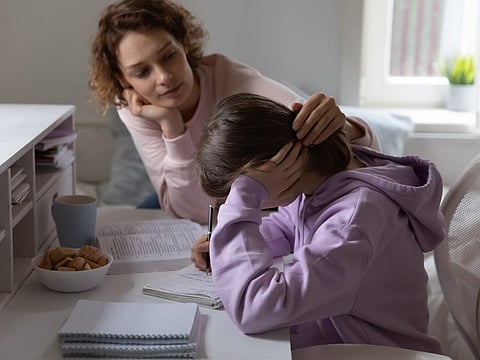46% fall in physical activity among UAE children during COVID-19 pandemic
Obesity rates, device use have also increased during lockdown, UAE-wide study finds

Also In This Package
Abu Dhabi: Amid the COVID-19 pandemic, the rate of physical activity among children has halved, a comprehensive UAE-wide study has found.
Specifically, there has been a 46 per cent reduction in the rate of physical activity among children who were active before the pandemic, even as the rate of obesity has increased during the same time, revealed the survey released on Sunday.
The survey of 27,754 parents confirmed that families in the UAE have faced similar children’s health repercussions due to the pandemic as in the result of the world. It was conducted by the Ministry of Health and Prevention (MoHAP), in collaboration with the Ministry of Education and the Abu Dhabi Public Health Centre.

“Based on these outcomes, a number of health indicators of the national agenda will be updated, especially with regard to obesity, physical activity, and diet among children. In the meantime, a set of programs and initiatives will be prepared to come up with proper solutions to the challenges imposed by the COVID-19 pandemic on the public health of school students,” Dr Al Rand said.
Sleep patterns
In addition to data on physical activity and obesity, the study had collected information on sleep patterns, device use and food delivery habits.
While there was no clear trend in sleep patterns, it was obvious that device use had increased during the pandemic, both for purposes of education and entertainment. A little more than half of the parents polled — 51.9 per cent — indicated that they had decreased the number of food delivery orders, while 19.7 per cent said they had increased the number of delivery orders.
Negative impact
The study also indicated the need for physiotherapy, among students of determination, to eliminate the negative impacts of the pandemic.
This particular survey had focused on five different areas, including the impact of the pandemic on the physical activity and food behaviours of students, the impact of distance learning and home quarantine on students’ sleep patterns, and the time spent by students with screens for educational and recreational purposes; and the impact of the pandemic on students of determination.
Dr Naglaa Sajwani, head of the MoHAP school health department, said a number of recommendations and action points had been derived from the survey.
Healthy habits
“It is important to adopting healthy habits while staying home, such as healthy nutrition and workouts that can be practised inside or just around the home. It is also important to educate students about the proper way to use electronic devices in order to prevent their negative effects, including obesity, back pain, and vision problems,” Dr Sajwani said.
“It is also essential to highlight the importance of getting enough sleep. In addition, students of determination must avail of physiotherapy to reduce the negative impact on their health,” she added.









